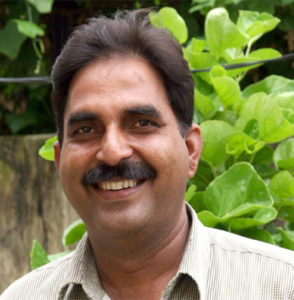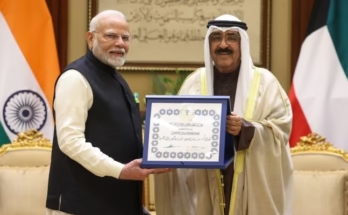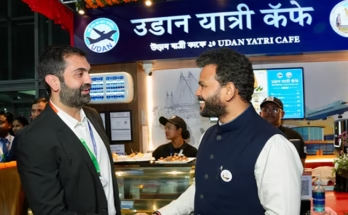 by Sanjay Saxena
by Sanjay Saxena
In recent years, there has been a significant change in the country’s politics. Now, youth leaders are not being nurtured from student organizations, schools, colleges, and universities. The general youth generation’s interest in politics is also decreasing. They even stay away from contemporary political discussions that are meant to advance the country. Prime Minister Narendra Modi raised this concern from the Red Fort on Independence Day, holding up a mirror to society.
On Independence Day, Prime Minister Narendra Modi called for bringing one lakh non-political youth into politics as representatives. He believes that doing so will help end caste-based and dynastic politics. Modi’s assertion is correct; these youths can join any party of their choice, not necessarily just one party. Modi felt the need to say this because today’s youth are becoming disinterested in politics. If new and fresh representatives enter the political arena, it will undoubtedly raise the level of politics. They will engage in politics differently from the norm. Modi’s statement probably reflects the nation’s desire as well, since people are also tired of family and dynastic politics. These youths will come from backgrounds without any political lineage. Their parents, siblings, uncles, aunts, or nephews have never been involved in politics in any generation, so the thinking of such talented youths will be different. Whether these youths contest elections for panchayats, municipalities, district councils, state assemblies, or the Lok Sabha, it will benefit the country. Most importantly, it will rid us of caste-based and dynastic politics.
In the current era, the behavior of big political leaders and the language they use suggest that these leaders are not prepared to play a mature and thoughtful role for the nation. During election campaigns, linguistic decorum is often disregarded. This scenario is also visible in the temples of democracy. Lying, misleading, and inciting the public have become necessities in politics. The political machinery involved in the election process has reached such a low level of thought and reflection that it is not inappropriate to consider that integrity in politics has become deceit. Our leaders are not ready to accept that the lack of linguistic maturity in political conflict should be ignored, but should such a casual and low-level attitude be adopted even on issues of broad national significance? It is dangerous for both the country and society when leaders of various parties express condemnation or support for an event according to their political convenience. Showing attachment to one section of society while neglecting another is not a sign of a prosperous democracy. This was recently seen when a military coup occurred in the democratically elected Sheikh Hasina government in Bangladesh. Following the events in Bangladesh, opposition groups began a competition of disparaging remarks against the Modi government. The most dangerous statements were those suggesting that situations similar to Bangladesh could occur in India. These statements indicated that the current government could face similar turmoil. The first statement came from Congress leader Salman Khurshid, who said, “What is happening in Bangladesh could happen in India.” Salman Khurshid, being a dynastic leader and a former Foreign Minister, should have understood diplomacy better. His statement cannot be taken lightly. Subsequently, a flood of similar statements followed. Salman was in a way suggesting a chaotic path to change the current government, signaling to the anti-government sentiment that it could be overthrown in a similar fashion. Recall Manishankar Aiyar, who had sought help from Pakistan to remove Modi from power. SP General Secretary Ramgopal Yadav’s statement also hurts the collective sentiment of the nation. He said that even dictators should remember that the people make such decisions. Aam Aadmi Party leader Sanjay Singh went so far as to say that anyone who acts dictatorially should leave the country. Madhya Pradesh Congress leader Sajjan Singh Verma stated that, like in Bangladesh, the Indian public would also storm the PM’s and Home Minister’s residences. Uddhav Thackeray’s chief aide Sanjay Raut said that those in power should learn from the events in Bangladesh. Farooq Abdullah remarked that every dictator will face a fate like that of Hasina. Congress spokesperson Ragini Nayak even made a meme to sarcastically warn Prime Minister Modi that now he must be cautious. She forgot that Sheikh Hasina was a friend of India, not just of Prime Minister Modi. She had been granted asylum by Indira Gandhi, and Hasina had also met Sonia Gandhi and Rahul Gandhi warmly until recently. These are leaders who cannot match Modi and his government politically, and the public avoids choosing such leaders as their representatives. Therefore, these leaders resort to making controversial statements through media or other communication channels to gain attention. They do not hesitate to target constitutional institutions to promote their politics. The most dangerous game is that these people make controversial statements publicly and, when caught in defamation cases, quietly apologize and wash their hands of the issue. Their agenda has become to demean the country’s industrialists, tarnish the reputation of the Election Commission, and defame the country based on reports and statements from foreign institutions. Even the judiciary is not spared.
A significant faction of opposition parties does not miss any opportunity to label Modi and Amit Shah as dictators. They also seize every opportunity to make derogatory remarks against them. The question arises whether it is correct to label any democratically elected leader as a dictator. Furthermore, it is unprecedented in the world to openly criticize and use offensive language against a dictator, yet such accused individuals continue to roam free in India. This is both shameful and condemnable. Opposition leaders use Dr. Ambedkar’s constitution as a political tool but forget that when it comes to national representation or symbols, the central power is constitutionally considered the representative or symbol of the country. Hence, the central government’s views on international matters are considered the nation’s stance. Until recently, the entire country held a unified view on international and diplomatic issues, but since leaders like Rahul Gandhi, Akhilesh Yadav, and Tejashwi Yadav have taken charge of family politics, the level of politics has significantly declined. The Aam Aadmi Party is also not blameless, with leaders like Owaisi being part of the problem. It is not that the opposition always agreed with the government on international issues, but previously, leaders avoided making these differences public. Disagreements were resolved internally, and the nation spoke with one voice, but now the situation has changed. Now, it is not about right or wrong but about opposing for the sake of opposing.
However, the ruling party cannot be given a clean chit either, as it too is somewhat guilty. The ruling party no longer considers the opposition’s views. What should happen is that a national consensus should be maintained for the country’s and public interest. National symbols should be respected, but now responsible people do not hesitate to use offensive language. The Bangladesh issue is not the first instance of such level of disparaging statements in politics. Similar behavior was seen during the Israel-Hamas conflict when Congress and other political parties tried to link it with Palestine and depict it as Muslim oppression. Recall the childish statements made when Vinesh Phogat was declared ineligible. The disputes over which state’s players won medals and which did not are raised. Questions are raised on SEBI based on the Hindenburg report. Attacks are made on the country’s industrialists.
(Written by Sanjay Saxena, Lucknow; these views are solely his own. The author can be reached at skslko28@gmail.com.)



